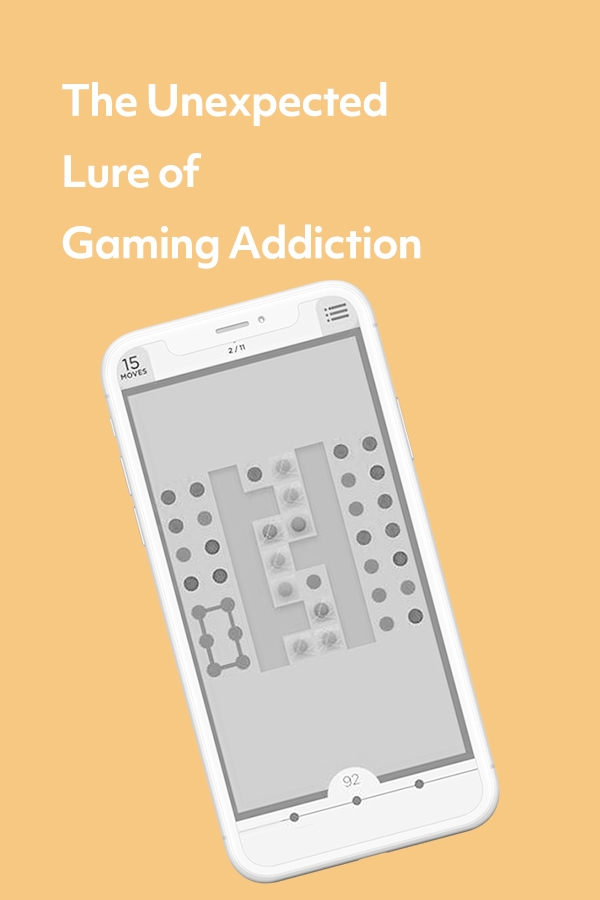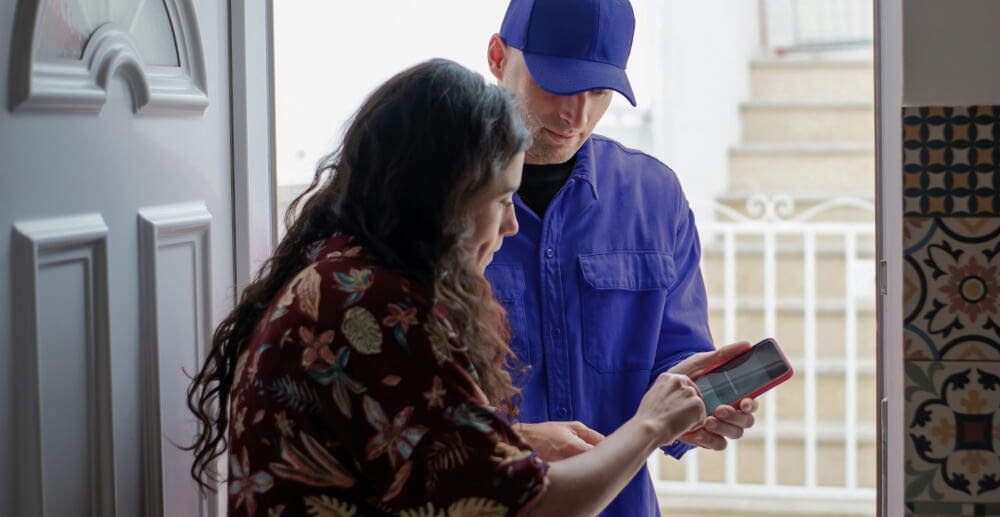Despite not being a “gamer,” I found myself drawn into gaming addiction through a harmless-appearing phone app.
I always used to think that gaming addiction was stupid. I mean, I understood that process addictions were valid because I’ve struggled with almost all of them (sex, eating, internet, shopping). But gaming and gambling were the two that had so far eluded the vast array of my addiction resume, and so I didn’t give them the same respect.
That is … until recently.
A distraction on my phone was my way into gaming addiction
I started playing Two Dots in 2015. I was instantly hooked, and so was my friend. We would joke, “Is this virtual crack? WTF?” Well, yeah. In many ways, that’s exactly what it is. When you win, you feel a little shot of dopamine and a fleeting sense of accomplishment as the screen showers you with a sparkly “ASTOUNDING!” or “AMAZING!” And then you’re off to the next, harder level. When I started to find myself spending money on power-ups and extra lives, I cut myself off and deleted it.
Cut to the pandemic. I was depressed, alone, and stuck in my apartment. Thinking fallaciously that since it had been YEARS since I was obsessed with Two Dots, I could play it moderately (Sound familiar to anybody with a drug/alcohol problem?), I downloaded it again. I SWORE to myself I would spend NO money. And I didn’t. However, I did end up playing for hours and hours a day. I could fool myself into feeling like I was being productive. I’d conquered 8 levels today!! But the truth is, I was just trying to check out of my life.
The thing that is supposed to keep you from playing Two Dots continuously is that you only get 5 lives. Once you’ve blown through those, you have to wait 20 minutes to get another life. So just imagine me pacing around and checking my phone, watching the countdown till I could play again. Or sitting through some ridiculous ad (almost always for another game) to get an extra life. As a recovering drug addict and alcoholic, this behavior was disturbingly familiar. However, once you hit the higher levels, you gain unlimited lives and, for me, that became a very big problem.
A lot of science and strategy goes into hooking us on these games
Games are the number one downloaded app category for IOS and Android. By far. NUMBER ONE! Some people can play moderately, just using them to kill time in a waiting room, multitasking, or playing when they’re bored or to relax. But how many people have a problem? My guess? A lot.
The gaming industry isn’t dumb. They know that to keep their players hooked and playing they need to hit that reward center and give their players a shot of dopamine. They do that by giving you a prize or some level of satisfaction when you complete a difficult level.
There seemed to be some mixed opinions among researchers on whether gaming is based on intermittent reinforcement like gambling or constant reinforcement like most other process addictions (think sex, shopping, etc). Honestly, I think it depends on the game and how good you are. The jury is still out on whether this is a “real” and separate addiction. The truth is any activity that gives you pleasure will change the brain over time. How much depends on the substance or activity, and on how much it increases dopamine in the brain.
Christopher Ferguson, a psychologist at Florida’s Stetson University, was cited in the Chicago Tribune as explaining that research had found that most people who play video games obsessively often have a mental illness like depression or anxiety. And the game may be a manifestation of that. But can’t that be said of most addictions?
For me, a huge part of the appeal of Two Dots was the escapism, a key in all of my addictions. I was too depressed to write or watch TV and this mindless game took me out of myself when I couldn’t sleep anymore. Hours would go by, and I wouldn’t even notice. I wasn’t thinking. I was concentrating on winning.
A lucky escape
So how did I stop? It was an accident, and also possibly a strange act of Providence. The game started freezing up, so I deleted and reinstalled it. I lost all of my 458 levels. I flipped out and wrote to the game-makers. Because I had not written down my gamer id or my restore code, there was nothing they could do. I tried restoring via Apple and Facebook, but nothing could get me back to my glorious hard-earned level. I was frantic, but it wasn’t long before I realized this was a blessing in disguise. I’m not a big fan of trite AA sayings like, “God is doing for me what I couldn’t do for myself.” But this seemed to be just that or … an eerie coincidence.
And with that, I was done. I play Ruzzle occasionally against friends, but for whatever reason, that game doesn’t hook me the way Two Dots did. Maybe it’s because Two Dots is more of a loner activity. I don’t know. Also, I don’t like losing, so when I’m getting my ass beat all the time by friends and strangers, the desire to play is dampened because …. no dopamine!
I didn’t experience terrible withdrawal when I deleted the app. I felt relieved that I could no longer engage in the eternal gaming escalator to nowhere. And I started to become productive again … because I had nothing to distract me. To top it off, there seemed to be a moral lesson in all this for me which had recurred throughout my life: I always become what I judge.
Wrap up
I believe addiction is a spectrum, and I’ve always known I was on the very far extreme. This experience proved that to be true once again. So if you’re somebody who gets hooked on everything, even things you could care less about, beware. Screen addiction and gaming addiction are the new frontiers of research.
So take a walk. Call a friend. Clean your house. Participate in your life. Get off your phone. All I can say is, once I opened up this box of demons AGAIN, 7 years later, it was a lucky fluke that I got out on my own instead of ending up in some Gamers Anonymous meeting with a bunch of 22-year-olds that had just spent 3 straight days playing “Call of Duty.”









